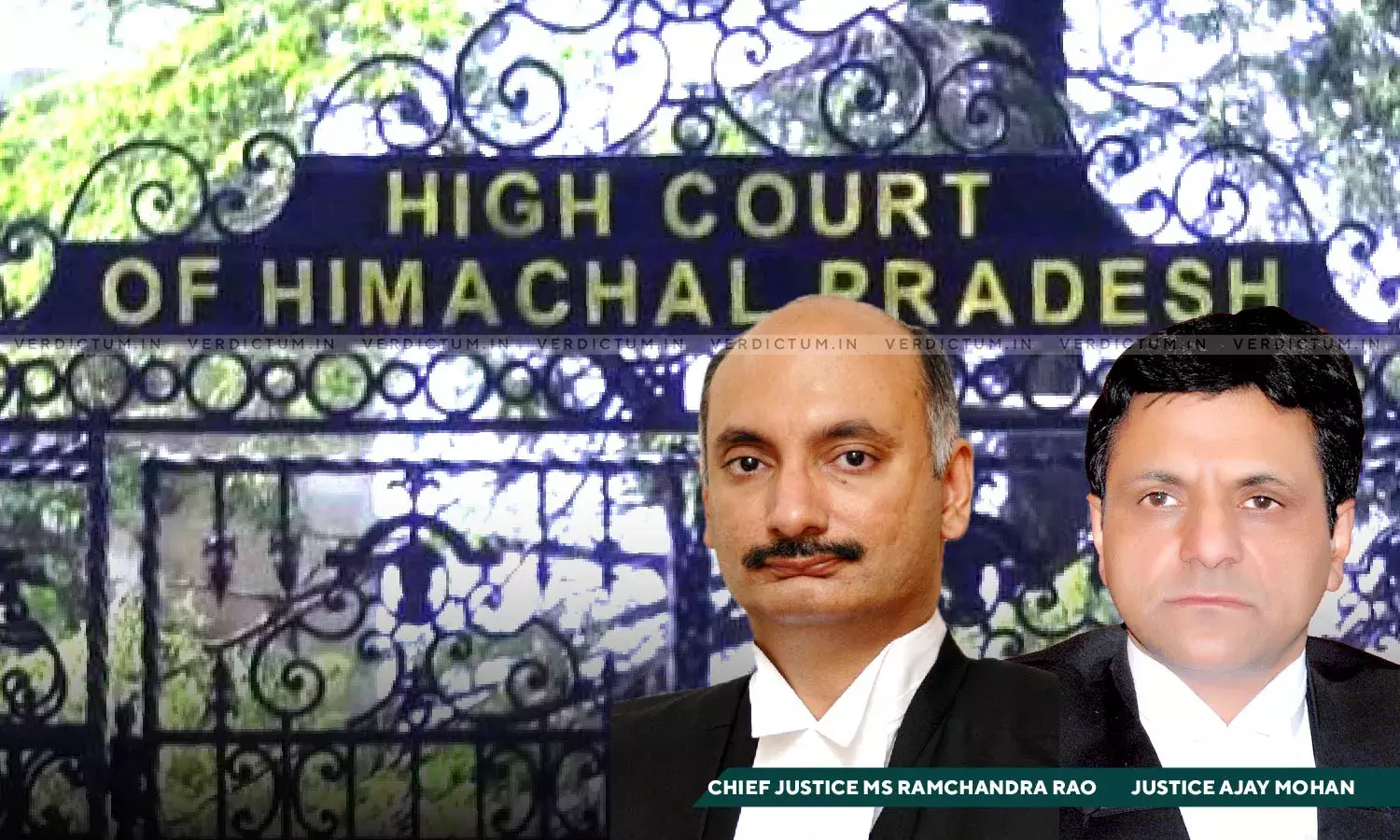Harassed Citizens: Himachal Pradesh HC Imposes Rs 10k Cost On State Govt For Continuing Litigation Involving Amount Of Rs. 2500

The Himachal Pradesh High Court while rejecting an appeal by the State government has imposed a cost of Rs. 10000 for continuing litigation for a meager amount of Rs. 2500 and thereby harassing citizens. The bench further directed the government to grant regular increment for the extended period.
“…it is not in dispute that the increment in question for which this appeal is filed by the State has a small value of appropriately Rs.2500/- only, which is very meager and hardly puts financial burden which would have warranted the filing of this appeal by the appellants. We are distressed that in such small value matters also, the State continues to litigate and harass the citizens”, observed a bench of Chief Justice M.S. Ramachandra Rao and Justice Ajay Mohan Goel.
Advocate General Anup Rattan, Additional Advocates General Navlesh Verma, and Pranay Pratap Singh, with Deputy Advocates Genera Gautam Sood & Mr. Arsh Rattan appeared for the appellants and Senior Advocate J.L. Bhardwaj appeared for the respondent.
In this case, as per the averments made, the respondent had retired on May 31, 2013, as a Tehsildar, Paonta Sahib. However, he was given an extension of service by the Government for a period of one-year w.e.f. June 1, 2013, to May 31, 2014.
As per the notification such extension would not entitle him to any additional increment/additional financial benefits, except the last pay drawn on May 31, 2013.
Therefore, contending entitlement for regular increment, the respondent approached appellant no. 1-competent authority on November 19, 2013 for release of the same.
Pursuant to this a writ petition was filed assailing the respondent's order rejecting his representation seeking directions to the appellants to award him the regular increment w.e.f. July 2013 as per the instructions issued by the Government of Himachal Pradesh contained in Chapter 22 of the Handbook on Personnel Matters Vol.II with all consequential benefits and also interest @ 12% per annum from the date it fell due till its realization.
Consequently, the Single judge bench allowed the petition, while directing the appellants to pay annual increments along with all consequential benefits.
The Court noted that Clause 22.2, Chapter 22 of the Handbook on Personnel Matters, Vol-II contained executive instructions in relation to personnel matters of State Government employees, where it draws a distinction between “extension in service” and “re-employment”. The Court said that the State should act as a model litigant and should not put forth frivolous, vexatious, and technical, contentions to obstruct the path of justice.
Therefore, on observing the facts and circumstances, the handbook instructions, and despite the respondent agreeing with the conditions of the notification the bench thus held, “Obviously following these instructions, the appellants would have granted full pay, other allowances and also increments to those employees whose services had been extended. It is not their case that this was not done. Why the appellants sought to deny the said benefit of grant of additional increment to the respondent and discriminated him alone compared to others who have got same benefits, is not explained. The State as a model employer cannot discriminate among its employees in this manner and give a benefit which is conferred under the applicable rules/instructions to some, and deny the same to others”.
While referring to Central Inland Water Transport Corporation Ltd. v. Brojo Nath Ganguly (1986) 3 SCC 156, the Court also highlighted the difference in bargaining powers of the parties.
“We may also look at it from another angle as to the bargaining powers of the respondent vis-a-vis the appellants. Undoubtedly, the respondent being a mere employee of the appellants, would be in a weaker position and would not have an equal bargaining power with the appellant, and he would have had to either accept the extension on the terms contained in Notification dated May 30, 2013 or leave it, however, unreasonable or unfair the term of the order of extension is”, the Bench observed.
Accordingly, the bench dismissed the matter while imposing costs.
Cause Title: State of H.P. and Others v. Rajinder Fishta
Th court noted that the Handbook contained executive instructions in relation to personnel matters of State Government employees, where it draws a distinction “extension in service” and “re- employment”.
Next Story

